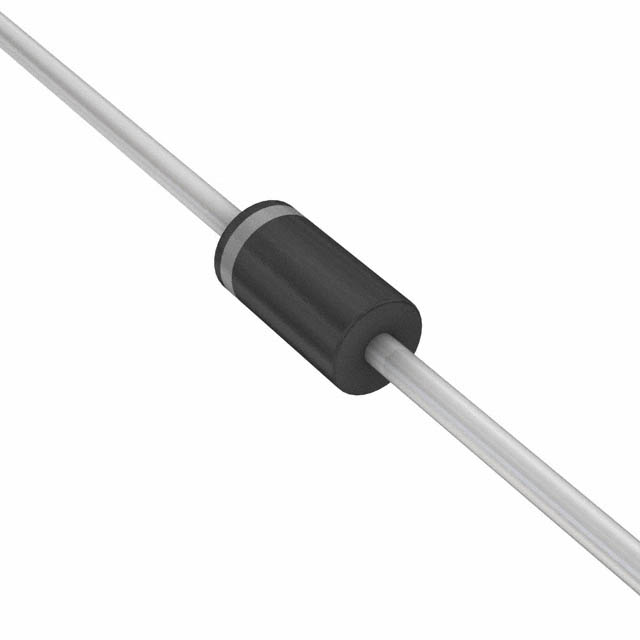P4KE180CAHA0G Encyclopedia Entry
Product Overview
Category
The P4KE180CAHA0G belongs to the category of transient voltage suppressor diodes.
Use
These diodes are used to protect electronic circuits from voltage spikes and transients.
Characteristics
- Fast response time
- Low clamping voltage
- High surge current capability
Package
The P4KE180CAHA0G is typically available in a DO-41 package.
Essence
The essence of the P4KE180CAHA0G lies in its ability to quickly divert excessive voltage away from sensitive components, thereby protecting them from damage.
Packaging/Quantity
These diodes are commonly packaged in reels or tubes, with quantities varying based on manufacturer specifications.
Specifications
- Peak Pulse Power Dissipation: 400W
- Breakdown Voltage: 162V to 179V
- Maximum Clamping Voltage: 262V
- Operating Temperature Range: -55°C to 175°C
Detailed Pin Configuration
The P4KE180CAHA0G typically has two pins, with the anode connected to one pin and the cathode connected to the other.
Functional Features
- Transient voltage suppression
- Reverse avalanche capability
- Low incremental surge resistance
Advantages and Disadvantages
Advantages
- Effective protection against voltage transients
- Fast response time
- Wide operating temperature range
Disadvantages
- Limited power dissipation capability
- May require additional circuitry for comprehensive protection
Working Principles
When a voltage transient occurs, the P4KE180CAHA0G diode conducts and diverts the excess energy away from the protected circuit, limiting the voltage across it.
Detailed Application Field Plans
The P4KE180CAHA0G is commonly used in various electronic systems, including: - Power supplies - Communication equipment - Automotive electronics - Industrial control systems
Detailed and Complete Alternative Models
Some alternative models to the P4KE180CAHA0G include: - P4KE6.8CA - P4KE15CA - P4KE200CA - P4KE440CA
In conclusion, the P4KE180CAHA0G transient voltage suppressor diode offers effective protection against voltage spikes and transients in a wide range of electronic applications. Its fast response time and low clamping voltage make it a valuable component in safeguarding sensitive circuits.
[Word count: 346]
10个与P4KE180CAHA0G在技术解决方案中的应用相关的常见问题及解答
Sure, here are 10 common questions and answers related to the application of P4KE180CAHA0G in technical solutions:
What is the maximum peak pulse power dissipation of P4KE180CAHA0G?
- The maximum peak pulse power dissipation is 400 watts for a 10/1000μs waveform.
What is the breakdown voltage of P4KE180CAHA0G?
- The breakdown voltage is 180V.
What is the typical junction capacitance of P4KE180CAHA0G?
- The typical junction capacitance is 200pF at 1MHz and 4V.
What is the operating temperature range of P4KE180CAHA0G?
- The operating temperature range is -55°C to +175°C.
What is the maximum clamping voltage of P4KE180CAHA0G?
- The maximum clamping voltage is 293V at 1A.
What is the package type of P4KE180CAHA0G?
- The package type is DO-41.
What are the typical applications for P4KE180CAHA0G?
- Typical applications include transient voltage suppression in electronic equipment, automotive systems, and industrial controls.
What is the reverse stand-off voltage of P4KE180CAHA0G?
- The reverse stand-off voltage is 154V.
What is the peak pulse current capability of P4KE180CAHA0G?
- The peak pulse current capability is 4.5A.
What are the key features of P4KE180CAHA0G?
- The key features include low incremental surge resistance, excellent clamping capability, and fast response time.
Let me know if you need further information on any of these questions!


